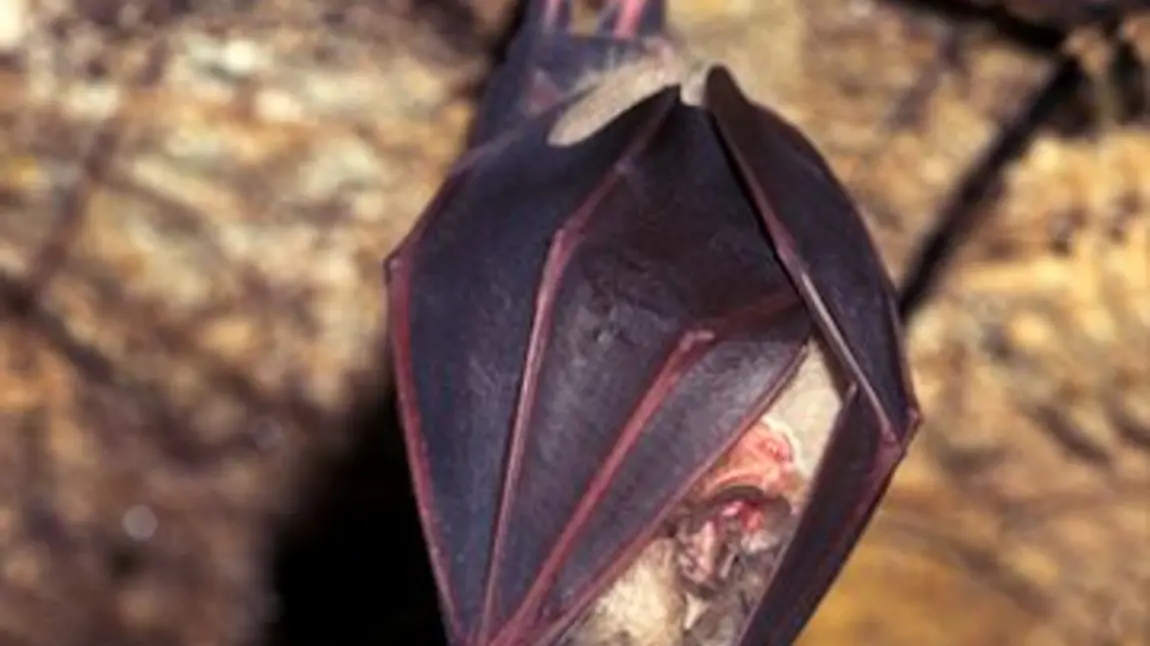Success for the Greater Horseshoe Bat

The money will be spent over twelve months developing a longer term project which aims at securing a future for the rare bats, in their last remaining stronghold in northern Europe.
Devon Wildlife Trust is leading the project’s development which involves twelve other partner organisations. The charity’s Conservation Advocacy Manager Peter Burgess, said: “Recent decades have not been kind to the greater horseshoe bat. They have struggled to cope with a changing landscape and insensitive building developments. British populations have fallen by 90% in the last century, leaving Devon as a last remaining stronghold.”
Peter continued: “But this project is offering hope. Funding from the Heritage Lottery Fund will allow us to plan the first stages of the Greater Horseshoe Bat Project. It will allow us to support local farmers to farm in more ‘bat friendly’ ways, helping to maintain vital bat feeding areas and flight corridors.”
Greater horseshoe bats are one of 16 bat species found in Britain. With wingspans of up to 40cm they are also one of the largest. They get their name from the remarkable horseshoe-shaped organ on their noses, which the bat’s use to navigate and find prey.
Female greater horseshoe bats are highly sociable and gather in large maternity roosts where they bring up their offspring. Devon has 11 of these roosts making it the most important place for the bat in northern Europe. The roosts are located in man-made structures including quarry caves, barns and mines at locations including Braunton, Buckfastleigh and the Tamar Valley.
One of the most exciting elements of the project will be the central role to be played by local people. Peter explained: “It’s also going to allow us to work with local communities, to help everyone to find out more about the bats, and enable them to contribute to the project and gain a sense of pride in their local bats. A number of ‘bat beacons’ will be set up that will be a focus for guided walks and trails, while new camera technologies will give everyone an insight into the daily lives of the bats. With hundreds of local people involved, bats - indeed all wildlife - stand a better chance of thriving.”
Nerys Watts, Head of Heritage Lottery Fund South West, said: “Whilst not always considered to be cute or cuddly, bats are essential to our ecosystem and their dramatic decline in numbers clearly demonstrates the urgent need to protect and understand them. We’re sure the Devon Wildlife Trust run project will be a great success and we look forward to seeing these initial plans progress over the coming months.”
Peter added: “Devon already has Europe’s largest maternity roost of greater horseshoe bats. With this project, Devon could in future boast Europe’s largest population of bat enthusiasts too.”
Notes to editors
About Devon Wildlife Trust
- Devon Wildlife Trust is the county’s leading environmental voluntary body, with more than 32,000 members.
- The charity manages 48 nature reserves all over the county, including a range of habitats such as woodlands, meadows, wetlands and heaths.
- DWT relies on charitable donations, grants and the generous support of its members and the general public to raise more than £3million every year. Money raised is spent maintaining our work for wildlife conservation and education in Devon, for present and future generations.
- The Trust is one of 47 in the UK. Together, they make up the Royal Society of Wildlife Trusts. Together RSWT have more than 800,000 members.
- DWT has 12 Local Groups based around the county. All play an important role in DWT’s work and are always looking for more volunteers.
Further information
Steve Hussey at Devon Wildlife Trust on 01392 279244 or 07771 304077 or email: shussey@devonwildlifetrust.org.
Laura Bates, HLF press office on 020 7591 6027, email: lbates@hlf.org.uk.